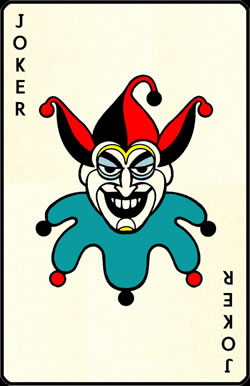Lying games work brilliantly in an English class because they push students to ask purposeful, well-formed questions. Meanwhile, the “liar” must rely on creativity—and sometimes heroic efforts—to keep a straight face.
Before starting one of these games, get students thinking by asking them to discuss this question in pairs or small groups:
How can you tell if someone is lying?
This short warm-up adds an extra layer of tension and humour to the activity that follows.
Two Truths and a Lie
This classic game works well as an icebreaker.
Ask students to write three sentences about themselves—two true, one false. Students then take turns reading their sentences aloud while the rest of the class tries to guess which one is the lie. Encourage classmates to ask follow-up questions to trip each other up.
The Lying Game – Team Version
Write five sentences about yourself on the board, but make sure two of them are lies. Ask students to discuss the sentences with a partner and guess which ones are false. Invite them to ask you questions to test your knowledge.
Your example might look like this:
- My favourite football team is Tottenham Hotspur
- I’ve never been to Scotland
- When I was young, I wanted to be a shop assistant
- I studied at Oxford University
- I can juggle four balls
Next, ask students to write five similar sentences about themselves—again, mixing truth and lies. Give them 10–15 minutes to think and write.
Then, divide the class into three teams (you can have more, but it becomes harder to manage). Give each team a piece of A4 card with “True” written on one side and “False” on the other.
How it works:
- Team A selects one sentence from their group and reads it aloud.
- Teams B and C discuss whether the sentence is true or false. They may also ask one question.
- After a minute or two, both teams hold up their True/False cards.
- Team A then reveals the actual answer.
Scoring:
- If Team A successfully fools both other teams, they earn a point.
- Teams B and C earn a point each if they guess correctly.
Poker Face

You’ll need a deck of playing cards (or slips of paper, though cards are more fun). Take out as many cards as there are students, making sure one of them is a Joker. Shuffle and deal the cards face down—students mustn’t show their card to anyone.
Tell the class:
If you have the Joker, you must lie. Everyone else must tell the truth.
The game proceeds clockwise. Each student asks another student one question—anything from casual small talk to personal details.
Closed questions (yes/no) are fine:
- Do you like English?
- Do you drive a red car?
- Have you lived in another country?
Open questions make the game more challenging:
- Where did you go on holiday last year?
- What kind of music do you like?
- What’s your favourite food?
- Where do you live?
- How often do you go running?
If a student thinks they’ve identified the liar, they can make a challenge. If they’re right, the liar is revealed. If they’re wrong, they sit out the rest of the round.
Some sharp students may try to “cheat the system” by asking obvious questions like Are you a woman? or Are you wearing shoes? Use your judgement as the teacher to disallow overly specific or unfair questions.
Pro tip: Join in yourself! It raises the energy and gives students a model for asking good questions. The game often dissolves into laughter as the Joker struggles to keep a straight face.
To spice things up, try adding a second Joker to the pack!
